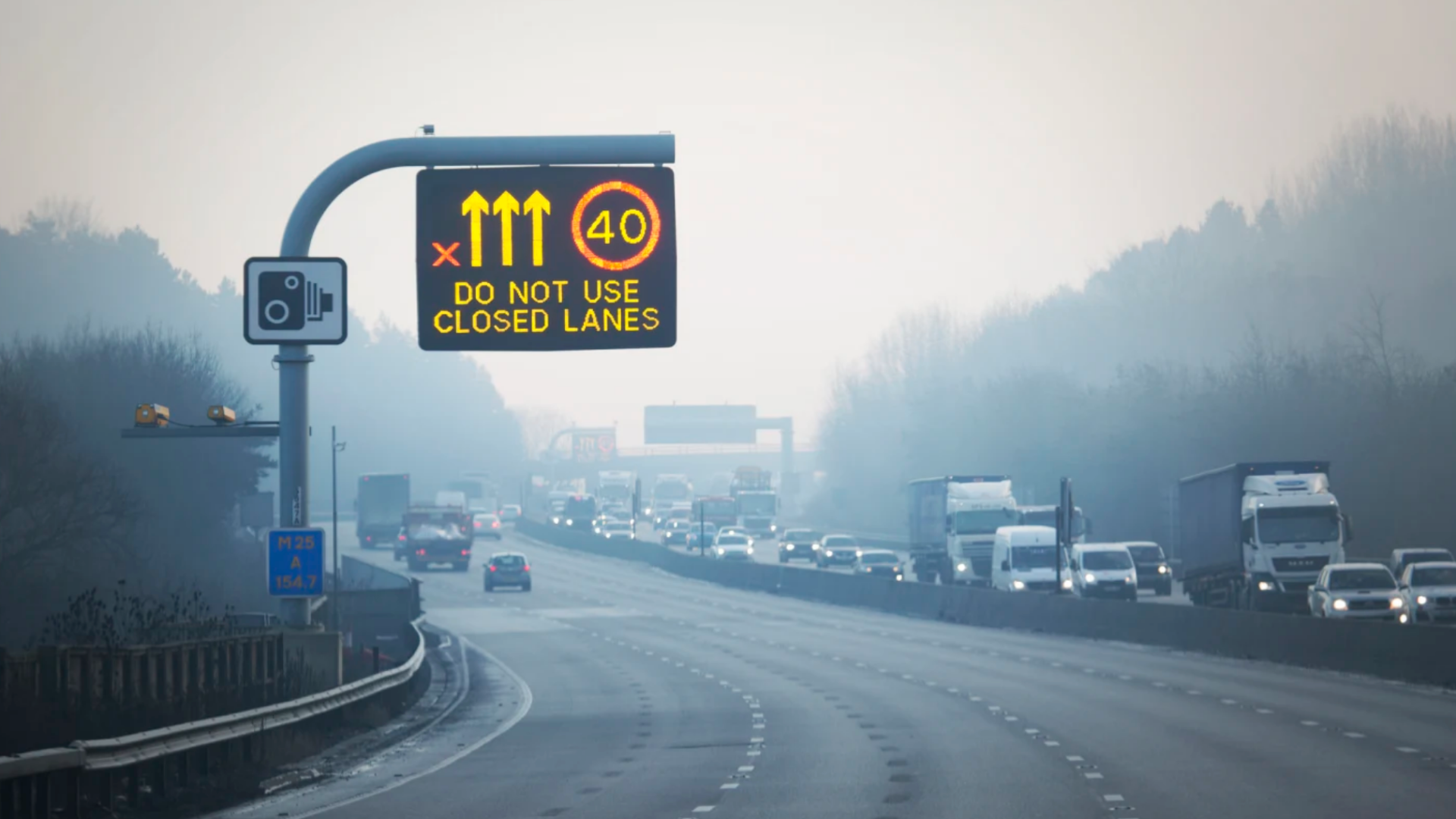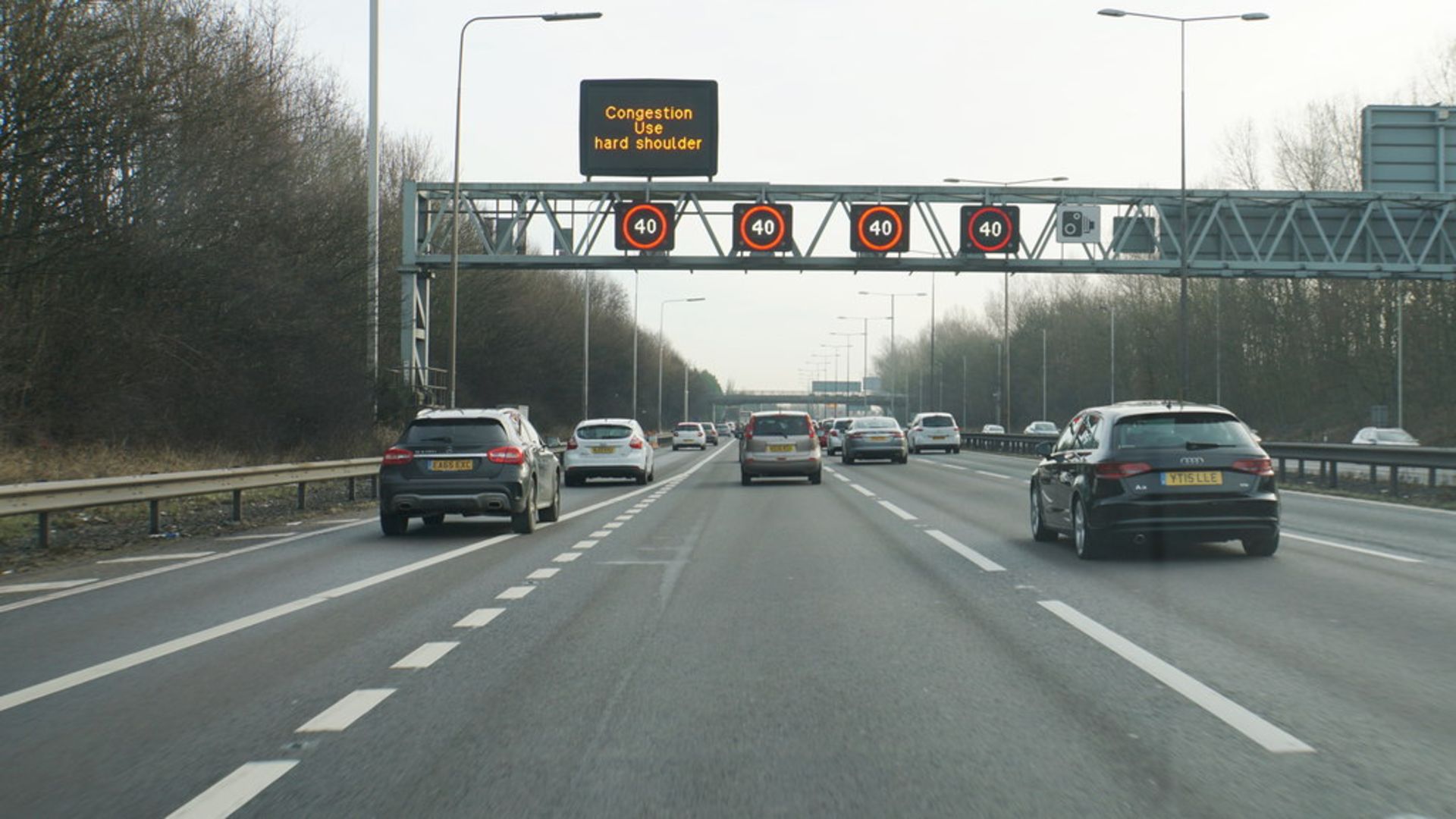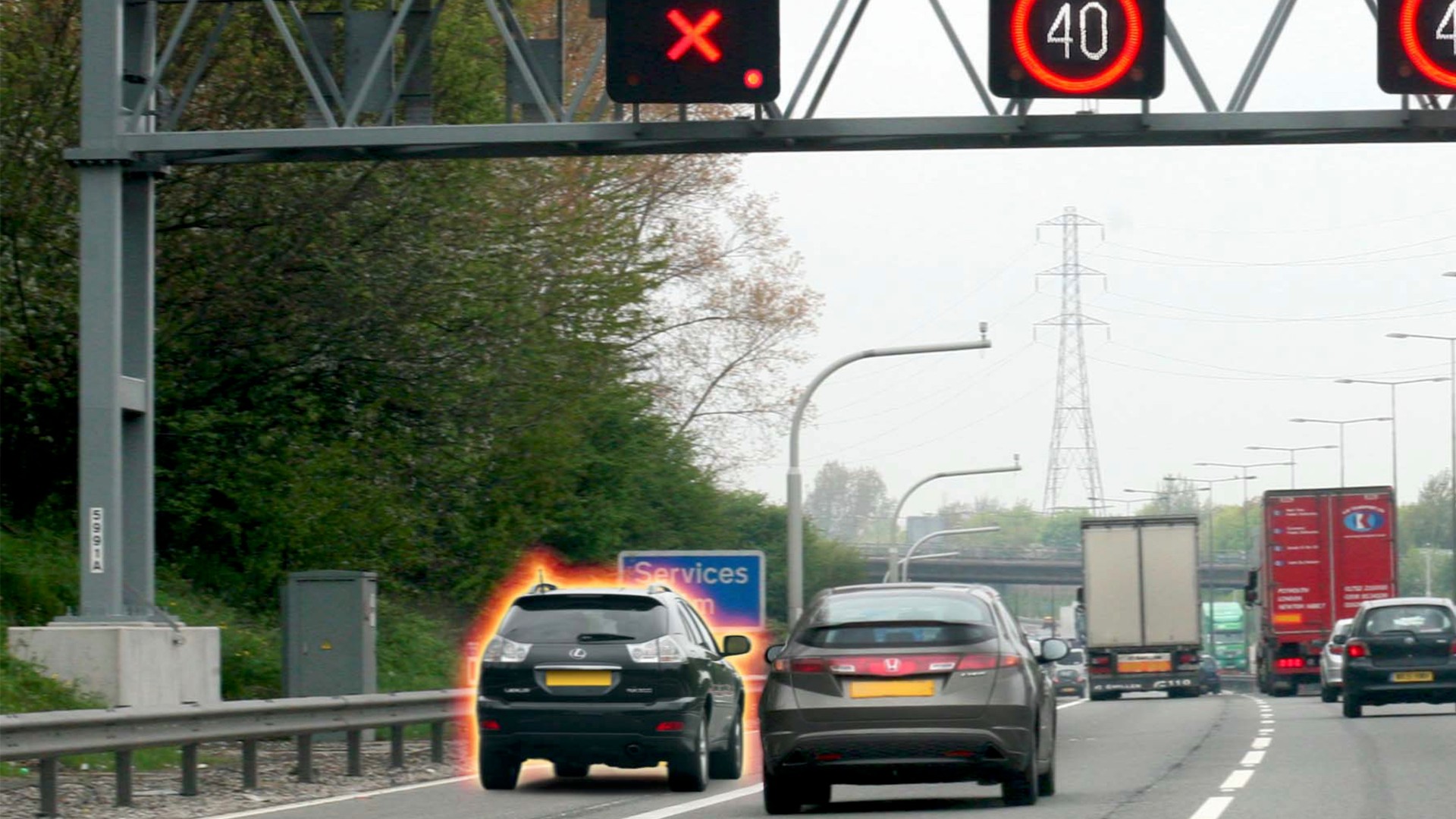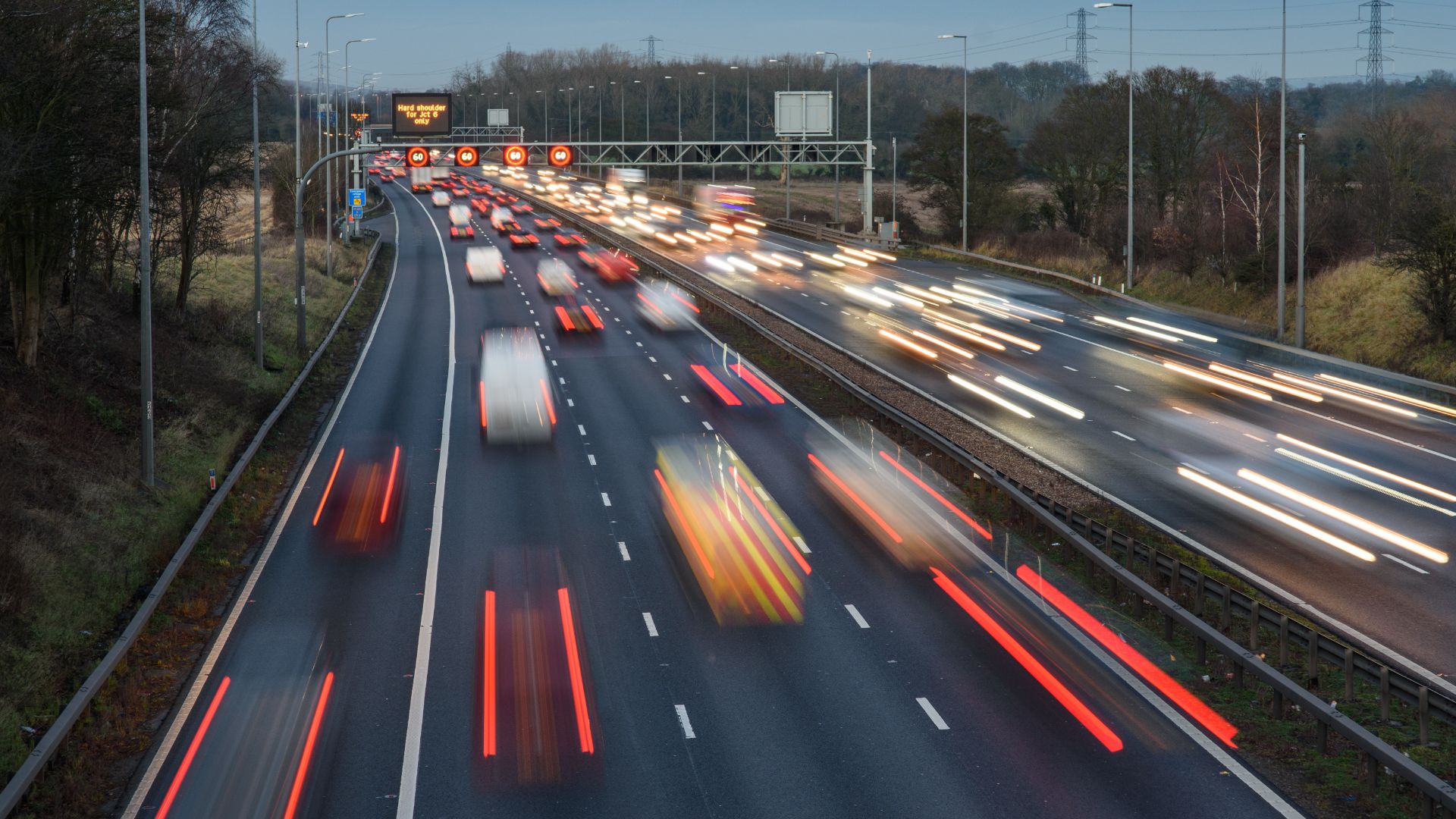
A road safety organisation has joined the calls to put the brakes on the rollout of smart motorways.
Some argue the absence of a hard shoulder makes smart motorways more dangerous than conventional motorways – a claim disputed by Highways England.
It says journey reliability has improved by 22 percent and personal injury accidents have reduced by more than a half since the introduction of the first smart motorway in 2006.
But Gem Motoring Assist is calling for smart motorways to be banned until a proper safety review has been carried out. It’s also demanding more refuge areas to provide a safe haven for stranded motorists.
‘Proper safety review’ is required

Gem road safety officer Neil Worth said: “Motorways may be the fastest roads we use, but they are statistically also the safest; and there are fewer collisions on motorways than on other roads.
“However, the high speeds used on motorways mean that when there is a crash, it is likely to be more serious. That’s why, on average, around one in 50 motorway collisions is fatal, compared with one in 70 on all other roads.
“We are also asking ministers and highways authorities specifically to call a halt to their rollout of smart motorways across the country until a proper review of safety has been completed and adequate refuge areas provided for drivers.
“In order to maximise safety, we also urge drivers to ensure they know the rules and signs relating to smart motorways, which are becoming more commonplace.”
‘Safest in the world’

Highways England insists smart motorways are safe and is investing around £3 billion in their rollout until 2020.
The agency faced criticism last month after a lorry ploughed into the back of a broken down vehicle in a stretch of hard shoulder being used as a live lane of the M1 near Chesterfield.
When asked about the dangers of smart motorways, a spokesperson for Highways England told Derbyshire Live that it would “never carry out a major improvement scheme” without being confident in maintaining its roads as “among the very safest in the world”.
“Smart motorways are good for drivers, adding vital extra lanes to some of our busiest motorways and making journeys safer and more reliable. As with other roads, we monitor the safety performance of smart motorways and are rolling out enhancements to improve the road user experience.“
Click here for our guide to driving on a smart motorway.
Highways England responds
Highways England has responded, saying its own assessment shows that accident and injury figures are falling. Collisions and casualties are, it says, 4.3 and 5.9 percent lower respectively than in 2017.
Emergency areas, slip-road hard shoulders and other places to stop in emergencies are located at least every 1.5 miles on all-lane running stretches of motorway. Highways England reiterated its commitment to reducing that distance to one mile from 2020.
“Safety is the top priority for Highways England and we urge everyone who uses our roads to make it theirs, too,” said Highways England head of road safety, Richard Leonard.
“Any death, on any type of road, is one too many. We’re working hard to improve England’s motorways and A-roads and we need your help. We all have a role to play to make sure we all get home, safe and well and we’re asking all drivers to make their own safety, and that of other people, the most important thing to think about when they travel. Remember to check your vehicle, obey all signs and think about other drivers.”